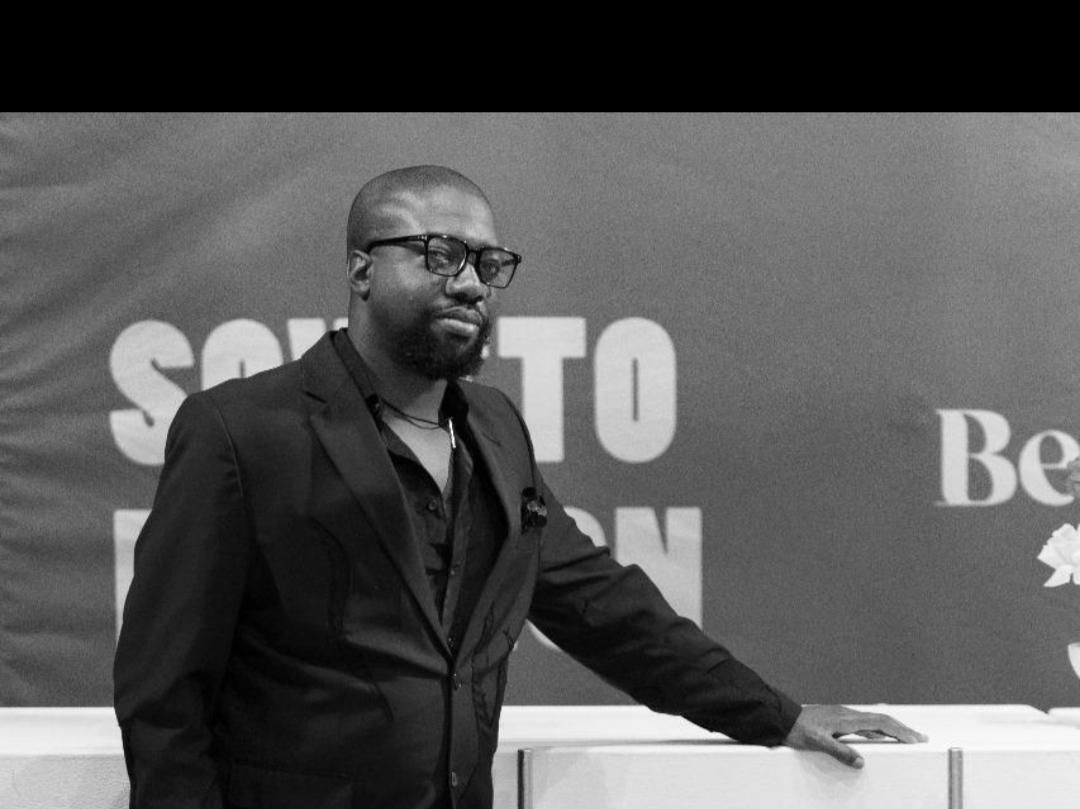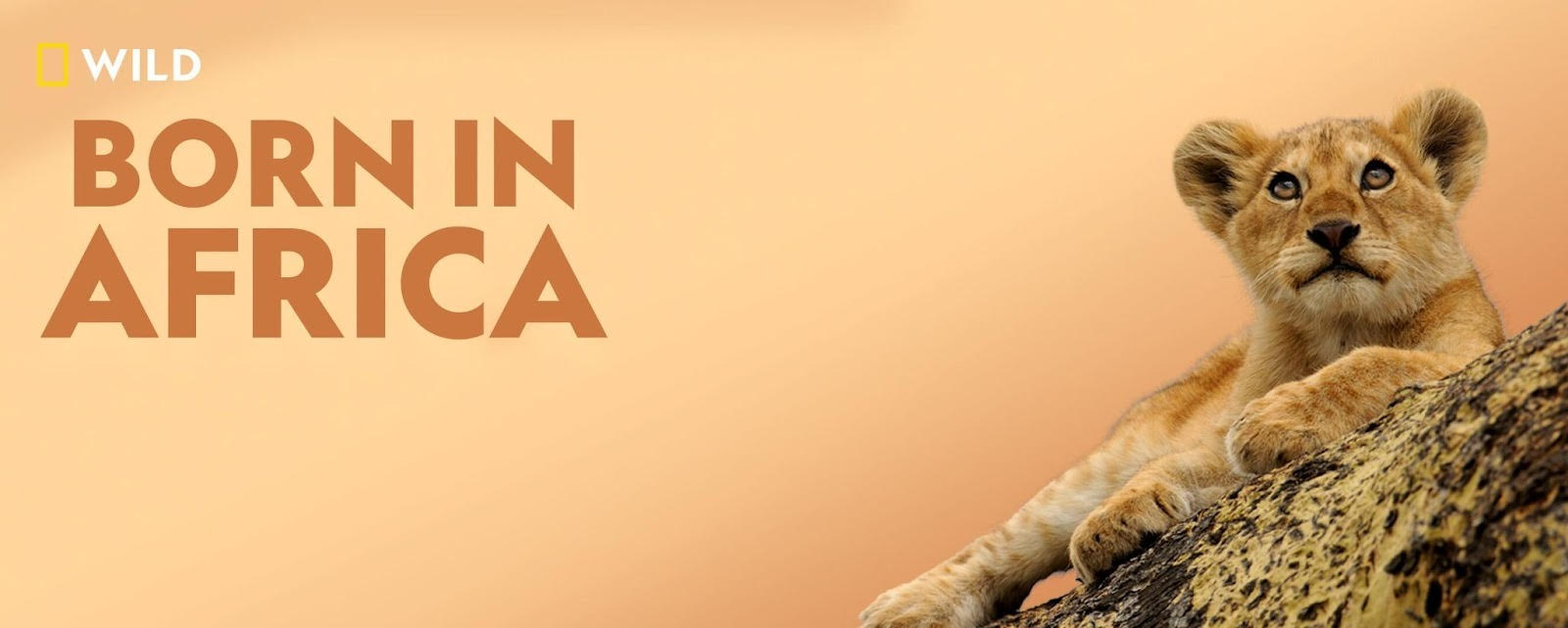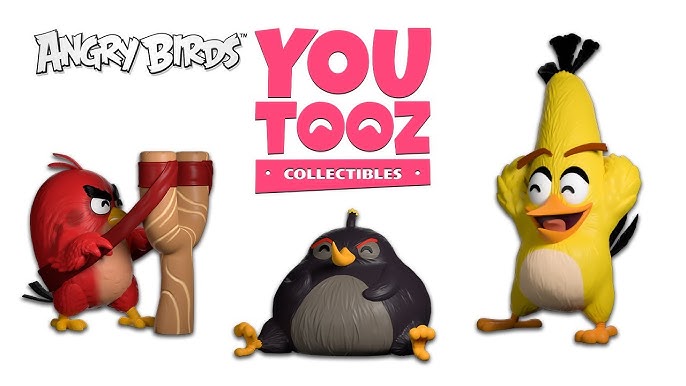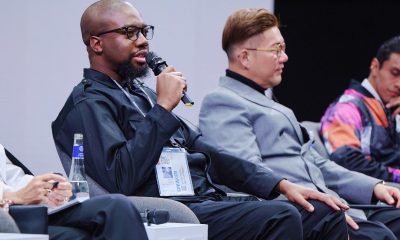Showbiz
South African Fashion Expands into Eurasian, Russian Markets

By Kestér Kenn Klomegâh
Organized by the Fashion Foundation with the support of the Moscow Government, the second Moscow Fashion Week was held from March 2 to 7, 2024. As part of the bilateral cooperation agreements signed at the BRICS+ Fashion Summit, directors of fashion weeks and councils from Brazil, Russia, India, China and South Africa, and new members, including Ethiopia, Egypt and UAE, were represented.
Generally, most designers are keen on creating routes for new business and focusing on cultural exchanges a step forward in exporting brands beyond the United States and Europe.
The Moscow Fashion Week attracted designers from Brazil, China, India, Indonesia, Turkey, Serbia, South Africa and other foreign countries, who had an excellent opportunity to showcase world-class brands with premium quality and long history to a wide audience and attract new buyers and customers. Designers and brand specialists used the chance to gain exposure and network with industry professionals.
The South African designers participated and presented their unique collections at the Manege Central Exhibition Hall.
Stephen Manzini, the organizer of the South African group’s participation in this spectacular grandest business event, is the founder and CEO of Soweto Fashion Week.
In this interview, Stephen Manzini offers his assessment and the importance of the Moscow Fashion Week and further emphasizes diverse fashion trends in the global markets. Here are the interview excerpts.
As the founder of Soweto Fashion Week, is it interesting to know the common sentiments among fellow Russian participants and other foreign designers during the recently held Moscow Fashion Week?
The current Moscow Fashion Week has been rebranded due to cities becoming global trendsetters. You will notice that all the big fashion weeks around the world are named after cities or towns (Soweto Fashion Week), hence, the rebranding from the Russian Fashion Week to Moscow Fashion Week.
It is my understanding that the sentiments are similar, and these include production challenges, costs of production, understanding and cracking foreign markets and differentiating between cultural and propriety in materials, as well as meeting business overheads at the end of each month.
What are your corporate views about potentials in South Africa for Russia, and in Russia for the South African designer industry?
Russia and South Africa have an excellent relations. Based on the existing cordial relations, I truly believe there’s great potential for both countries. The potential for South Africa in Russia includes access to an open and curious market. We bring our rich cultural background to the table, cultural materials, design, print and overall make which is very colourful based on tribal colours and inspiration. It’s something different for the curious fashions in Russia. It may be a niche market today B2C until with time it is tapped into the B2B economy.
Russia for the South African designer industry. I truly view it as a much easier transition. Our mainstream wear in retail stores is very much inspired by European apparel, if they can match the final price tags in the market, they should be able to make way in a short space of time B2B.
Have you anything to say about setbacks, challenges and policy blocs in penetrating the Russian and Eurasian markets? What are the popular complaints in the fashion industry?
One of the most popular setbacks, challenges and policy blocs include financial backing for South African design houses to expand into Eurasian and Russian markets. It is not only that; if you pay attention to the import-export index, it is mostly about importing to South Africa rather than exporting. Sometimes, little or too much leads to product dumping and fast fashion. The BRICS bilateral political agreements have made it easier and simpler for the removal or reduction of policy blocs to Russia and Eurasia.
Do you consider market competition and the changing corporate realities as challenges?
Of course, every business has to consider these factors. There are always bigger and international brands with advanced access to information or sometimes absorbing a traditional South African designer to get inside trade secrets on cultural propriety. This squeezes the emerging designer’s niche marking and forces them to close or better yet adapt and reinvent themselves. I reckon it is the same in Russia and Eurasian markets.
Do you think the media as part of a decisive factor in building effective cultural ties, including the fashion business, with Russia and South Africa?
Media is one of the decisive factors in my point of view. The media drives the narrative and paints a picture that makes ties desirable, it carries a message that will attract newer ties and build stronger current ones. Even more so in the fashion business which is driven by visuals that the media projects across the globe giving evidence and a track record of the ties.
From the above narratives, what measures or steps do South African designers together with Russian counterparts suggest for unlocking and tapping for cooperation?
The necessity to establish continual exchange until tangible results are realized. The goals we seek to achieve will not happen after a once-off attempt of continual media coverage, exchange, learning and adapting to each country and consumer needs. South African designers are all emerging in Russia and Russian designers are emerging in South Africa, this narrative alone suggests that there is a lot of work to be done and we look to achieve solid cooperation.
What other areas have you already identified, besides fashion, to engage in as part of fostering the scope of people-to-people gathering (public outreach) between Russia and South Africa?
I have identified a unique water purification process that caters for self-service or an intimate community which could work well in South Africa. The business of purified water is the future gold business in my viewpoint as we already have a shortage of healthy clean water in certain parts of South Africa. That’s another industry that needs to engage as a matter of urgent necessity.
Any wider possibilities such as the BRICS platform, both Russia and South Africa are members of this association?
As you may be aware BRICS (Brazil, Russia, India, China and South Africa) platform is expanding. That is the main focus at the moment, and emerging global markets are coming together to build for each other industries outside of Western Europe and the United States. It doesn’t get wider than that, in my point of view, as that is the future of the world.
Showbiz
Why Wildlife Shows Hook Us: The Allure of NatGeo Wild

There is something undeniably captivating about wildlife documentaries. The moment a predator locks eyes with its prey, the awe of seeing animals in their natural habitat, the thrill of nature’s drama playing out in real time. These are experiences that rein us in and refuse to let go. NatGeo Wild doesn’t just show the wild; it invites us to feel it, understand it, and marvel at it.
What is it about the wild that keeps pulling us back, no matter how many times we watch?
The Explorer in All of Us
At our core, we are wired much like the animals we watch. Curiosity drives us the way it drives a leopard to investigate a sound in the distance. Wildlife shows activate that instinct. We scan scenes like hawks from above, reading body language, anticipating danger, noticing subtle shifts in behaviour. In these moments, we’re more than viewers; we’re explorers, investigators, and sometimes even adventurers.
It’s a way to witness danger safely. A way to test our instincts and a way to connect with the power and beauty of the natural world, all from the comfort of home.
The Comfort of Nature’s Stories
Nature may be ruthless, but it is rarely random. Like a herd moving in rhythm or a pack operating with purpose, wildlife shows follow a structure we instinctively understand: predator and prey, threat and escape, loss and resilience.
Within a single episode, chaos settles into balance. Even in harsh environments, there is order just as there is in the wild. That predictability offers comfort, reminding us that survival follows rules, patterns, and rhythms older than humanity itself.
NatGeo Wild Shows That Keep Us Glued to the Screen
Over the years, NatGeo Wild has mastered the art of storytelling that moves like nature itself, quiet when it needs to be, explosive when it matters most. These are not just documentaries; they are immersive experiences that sharpen the senses and stir instinct.
Africa’s Deadliest
Step into the African wilderness, where survival is a daily contest of speed, strength, and strategy. Africa’s Deadliest introduces us to predators that hunt with the patience of chess players and the precision of seasoned warriors. From crocodiles lying in wait beneath murky waters to lions coordinating attacks across the savannah, each episode breaks down how instinct, timing, and dominance decide who eats and who doesn’t.
Wild, Smart and Deadly
Wild, Smart and Deadly is where brains meet brawn in the animal kingdom. This series delves into the intelligence behind nature’s deadliest hunters, showcasing creatures that use strategy, cunning, and sheer wit to survive. From octopuses escaping predators with mind-blowing tricks, to predators setting up elaborate ambushes, every episode reveals how survival in the wild is a high-stakes chess game. Watching it feels like witnessing nature’s most elite tacticians at work, where one smart move can mean the difference between life and death.
Born in Africa
In the wild, birth is only the beginning. Born in Africa follows young animals from their first breath into a world that offers no mercy. Every stumble, chase, and lesson learned is part of a race against time. From a giraffe learning to stand within minutes to lion cubs discovering the rules of dominance, the series captures vulnerability, growth, and resilience in its purest form.
Wild Mediterranean
The Mediterranean may look serene, but beneath its surface lies a battlefield of survival. Wild Mediterranean uncovers a world where predators hunt in crystal waters and creatures adapt to shifting coastlines and hidden dangers. From dramatic underwater pursuits to life along rugged shores, the series reveals a region shaped by adaptation, resilience, and quiet ferocity.
Hostile Planet
Here, nature shows no mercy. Hostile Planet explores environments so extreme they feel uninhabitable, yet life persists. Animals endure freezing tundras, scorching deserts, and violent storms, adapting in ways that defy belief. Every episode is a testament to resilience, revealing how instinct, evolution, and sheer willpower allow life to survive against impossible odds.
These shows captivate because they do more than entertain; they educate, inspire, and transport us into worlds we’d rarely get to see otherwise. Every episode is an invitation to explore, learn, and marvel at the wonders of nature.
Catch all these incredible wildlife stories on NatGeo Wild, GOtv Channel 100.
Subscribers can also enjoy more value with the We Got You offer, available until 28th February 2026. Pay for your current package and automatically get upgraded to the next one at no extra cost, giving access to more channels, more shows, and more moments like these.
To subscribe, upgrade, or reconnect, download the MyGOtv App or dial *288#. You can also stream anytime with the GOtv Stream App.
Showbiz
TikTok’s 2026 The Discover List Features Five African Creators

By Modupe Gbadeyanka
Five creators from Sub-Saharan Africa have been featured in TikTok’s annual global The Discover List 2026, marking a standout moment for the region’s growing influence in the global creator economy.
They were among the 50 most influential creators shaping culture worldwide across five categories: Icons, Innovators, Foodies, Educators, and Originators.
From medical education in Lagos to culinary innovation in Nairobi and Cape Town, and from dynamic design studios in Johannesburg, African creators are not just being seen on the world stage — they are commanding it.
The Discover List 2026 reaffirms that TikTok is not only where trends begin, but where real opportunities take shape and creators turn influence into lasting impact.
The five TikTok creators from Africa featured were Tamia Nontsikelelo from South Africa, Cherie Kihato of Savannah Space from Kenya, Wayne Chang from South Africa, Olawale Ogunlana of HealthKraft Africa from Nigeria, and Trevor Were from Kenya.
Ogunlana breaks down complex medical conditions into clear, engaging videos, turning digital platforms into powerful tools for better health across the continent. He is also one of TikTok’s Sub-Saharan Wellbeing Ambassadors.
As for Chang, he is celebrated for his vibrant culinary content that blends diverse Asian cuisines with locally sourced South African ingredients, while self-taught chef Were transforms simple, everyday meals into exciting and accessible creations. He shares approachable recipes and cooking inspiration from his home kitchen.
Also, Kihato, a creative entrepreneur, showcases heritage through furniture, art and interiors. Through content creation, she has expanded her business beyond Kenya, inspiring a global audience of design lovers and aspiring creatives, while Nontsikelelo fuses storytelling and marketing on TikTok to build powerful, engaged communities around her modest fashion brand.
Commenting on the latest development, the Global Head of Content Operations for TikTok, Mr James Stafford, said, “At TikTok, we are committed to celebrating our inspiring creator community. Today, we are thrilled to unveil The Discover List 2026 — a highlight of 50 creators to watch from around the world.
“From the Educators who are inspiring their communities to learn something new, to the Originators who share their businesses with global audiences on TikTok, we are proud to be a space where new talent can be discovered, and authenticity and creativity can thrive.”
Business Post recalls that in 2025, Sub-Saharan African creators featured on the Discover List for the very first time, a milestone that unlocked unprecedented global visibility.
Those creators were spotlighted in international publications, including TIME Magazine and participated in major global moments such as Cannes Lions International Festival of Creativity.
At Cannes Lions, Chef Abby (Abena Amoakoaa Sintim-Aboagye) from Ghana engaged directly with TikTok CEO Shou Zi Chew and the Mayor of London, further amplifying her global presence. Building on this momentum, she was also nominated at the 2025 TikTok Awards in Sub-Saharan Africa, where she emerged as First Runner-Up in the Food Creator of the Year category.
Showbiz
Pop Culture Collectibles for Modern Fans and Collectors

Pop culture collectibles have transitioned from niche hobby-shop items into highly sought-after products that drive ecommerce revenue and audience engagement. For entrepreneurs, affiliate marketers, and agencies targeting fandom-driven communities, knowing which items sell, how to verify authenticity, and where to promote listings is crucial. Working with Youtooz Collectibles provides insight into the types of figures and limited-edition items that modern collectors value, along with sourcing strategies, valuation and preservation essentials, and practical selling tactics—all presented with actionable guidance that businesses can use to boost traffic, conversions, and brand authority.
Why Pop Culture Collectibles Matter For Fans And Sellers
Pop culture collectibles matter because they bridge emotional value and market value. For fans, a collectible can be a tangible connection to a beloved franchise, a limited-run expression of identity, or an heirloom. For sellers, especially online store owners, dropshippers, and affiliate sites, those same emotional drivers create predictable demand cycles tied to film releases, anniversaries, conventions, and social trends.
From an ecommerce perspective, collectibles present several advantages: higher average order values, cross-sell potential (e.g., figure + display case), and strong content marketing opportunities. Niche-focused SEO and link-building campaigns can drive targeted traffic that converts at above-average rates: authoritative backlinks from fan sites, review blogs, and industry press amplify visibility for product pages and category hubs.
But, sellers must also navigate seasonality, counterfeits, and fickle trends.
Top Types Of Pop Culture Collectibles
Collectible categories vary in liquidity, storage needs, and audience. Below are the primary types modern fans and collectors pursue, with notes on market behavior.
Action Figures, Toys, And Vinyl Figures
Action figures and vinyl figures (e.g., Funko Pops, designer vinyl) remain top sellers thanks to broad fan bases and affordable price points. Limited runs, convention exclusives, and artist collaborations command premiums. For sellers, boxed mint condition items are easiest to monetize, while rarer loose figures can require restoration expertise.
Comics, Graphic Novels, And Books
Comics and graphic novels have both nostalgic and investment appeal. First issues, variant covers, and signed editions attract collectors and speculators. The comics market responds strongly to on-screen adaptations: a hit series or film frequently spikes demand for original runs.
Movie, TV, And Music Memorabilia
Autographed posters, screen-used props, and concert-worn clothing are high-ticket items. Provenance and certificates of authenticity are critical here, buyers will pay for verified history. Sellers who can source items tied to cultural moments often find passionate, deep-pocketed buyers.
Video Games, Consoles, And Gaming Merchandise
Retro consoles, limited-run cartridges, and sealed games are appreciating assets. Gaming merchandise, soundtracks, artbooks, collector’s editions, performs well alongside new releases. Marketplace demand often clusters around nostalgia waves and remasters.
Limited-Edition Art, Statues, And Designer Toys
High-end statues, limited-run prints, and gallery toys appeal to collectors who prioritize scarcity and craftsmanship. These items require careful storage and targeted marketing: they often sell through specialty sites, auctions, and gallery drops rather than mass marketplaces.
How To Source Rare Finds And Build Inventory
Sourcing determines margins and differentiation. A mixed approach, online research, real-world hunting, and creator partnerships, works best for steady inventory flow.
Online Marketplaces, Auctions, And Market Research
Monitoring eBay, Mercado Libre, Heritage Auctions, and specialized auction houses uncovers underpriced lots and cross-border arbitrage opportunities. Use saved searches, completed-listing data, and market-watch tools to identify price trends. Competitor backlink profiles and topical content can reveal where collectors congregate, valuable intel for outreach and link-building.
Conventions, Local Stores, Estate Sales, And Thrift Hunting
Conventions and local comic shops are goldmines for exclusives and trade-ins. Estate sales and thrift stores sometimes hold miscataloged treasures, signed books, rare comics, original posters. Successful sellers develop quick authentication instincts and a network of local contacts to source before items hit public listings.
Working With Creators, Wholesalers, And Dropship Partners
Direct relationships with creators and licensed wholesalers secure early access and confirmed authenticity. Dropship partnerships reduce upfront inventory risk, useful for testing niche demand. For high-ticket collectibles, working with trusted consignors and offering pre-orders can minimize capital exposure while guaranteeing exclusivity.
Authenticity, Grading, And Valuation Essentials
Trust is the currency of the collectibles market. Clear authentication practices, standardized grading, and transparent valuation make listings more competitive and reduce disputes.
Authentication Methods And Common Certificates
Authentication methods include COAs (Certificates of Authenticity), third-party authenticator stamps (e.g., PSA/DNA for signatures), and provenance documentation (receipts, photos of original acquisition). Digital verification, serialized QR codes or blockchain provenance, has emerged for premium items and limited editions.
Grading Standards And Condition Notes Collectors Care About
Grading protocols differ by category. Comics often use CGC grades: trading cards use PSA: vinyl/statues rely on detailed condition notes (mint, near mint, very fine). Sellers must describe defects, yellowing, seam splits, box crushes, with photos and standard terminology. Accurate grading reduces returns and builds reputation.
Key Factors That Drive Market Value And Price Trends
Scarcity, cultural relevance (tie-ins to media releases), condition, and provenance drive value. Secondary factors include artist/designer notoriety, variant rarity, and international demand. Sellers watching pre-release hype, convention exclusives, and media calendars can anticipate price spikes and adjust inventory strategies.
Storage, Preservation, And Display Best Practices
Proper care preserves value. Whether storing inventory for sale or curating a showroom, small investments in preservation pay off when items sell for premium prices.
Proper Storage, Packaging, And Climate Considerations
Climate control matters: humidity and temperature fluctuations damage paper, vinyl, and fabric. Store comics and books in acid-free sleeves and boxes: keep figures in original packaging when possible and use silica packs to control moisture. For long-term storage, aim for stable, moderate temperatures and low humidity.
Display Strategies For Collectors And For Ecommerce Photography
Displays should protect while showcasing. Use UV-filtering cases for signed posters and dust-free shelves for vinyl figures. For ecommerce photography, shoot both staged lifestyle images and close-ups of condition details: include measurements and scale references. High-quality visuals improve conversion and reduce questions from buyers.
Insurance, Documentation, And Provenance Tracking
Insure high-value inventory and keep digitized records of COAs, receipts, and photos. A simple inventory management system that tags provenance data makes it easier to verify authenticity during sale and supports claims for insurance or dispute resolution.
Selling, Monetizing, And Promoting Pop Culture Collectibles
Turning a collection into recurring revenue requires platform strategy, listing optimization, and community engagement.
Choosing Platforms: Marketplaces, Your Store, And Niche Sites
Marketplaces (eBay, Etsy, StockX) provide reach and discovery: your own ecommerce store offers brand control and higher margins. Niche marketplaces and forums (comic consignment sites, collector communities) attract serious buyers for premium lots. An omnichannel approach, list flagship items on marketplaces and reserve exclusives for the store, balances traffic and margin.
Pricing, Listing Optimization, And SEO Tips For Higher Visibility
Price with data: use completed sales to set competitive ranges and factor in fees and shipping. Optimize listings with keyword-rich titles, structured bullets, and clear condition notes. For organic search, create content hubs, buying guides, value charts, and trend pieces, that naturally attract backlinks. Link-building campaigns targeting fan blogs, review sites, and pop culture publications increase domain authority and lift product pages in search results.
Building Community, Partnerships, And Repeat Customers
Community fuels collectible sales. Host drop announcements, run loyalty programs, and partner with influencers for unboxing content. Affiliate partnerships and guest posts on niche sites drive targeted referral traffic: agencies focusing on backlink strategy can tailor campaigns that place the seller in front of engaged fan audiences. Repeat customers often buy multiple items, offer bundles, pre-order lists, and restock alerts to capture lifetime value.
Conclusion
Pop culture collectibles combine emotional resonance with monetizable demand, an attractive proposition for ecommerce operators and marketers. Success hinges on sourcing smart, verifying thoroughly, preserving carefully, and promoting strategically. For businesses aiming to scale, investing in SEO, high-quality content, and targeted link-building amplifies reach to dedicated fans and converts interest into profitable sales. With the right systems, inventory controls, authentication processes, and promotional partnerships, collectibles can become a dependable, high-margin pillar of a modern ecommerce portfolio.
-

 Feature/OPED6 years ago
Feature/OPED6 years agoDavos was Different this year
-
Travel/Tourism10 years ago
Lagos Seals Western Lodge Hotel In Ikorodu
-

 Showbiz3 years ago
Showbiz3 years agoEstranged Lover Releases Videos of Empress Njamah Bathing
-

 Banking8 years ago
Banking8 years agoSort Codes of GTBank Branches in Nigeria
-

 Economy3 years ago
Economy3 years agoSubsidy Removal: CNG at N130 Per Litre Cheaper Than Petrol—IPMAN
-

 Banking3 years ago
Banking3 years agoSort Codes of UBA Branches in Nigeria
-

 Banking3 years ago
Banking3 years agoFirst Bank Announces Planned Downtime
-

 Sports3 years ago
Sports3 years agoHighest Paid Nigerian Footballer – How Much Do Nigerian Footballers Earn


















